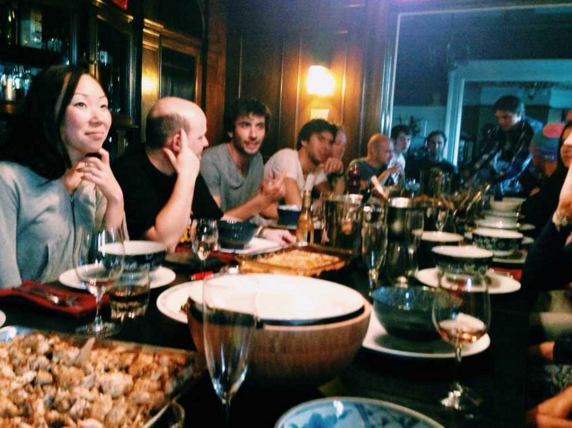 aNewDomain — I used to volunteer at the zoo with my son, when he was a bit younger. Our zoo has an outreach program featuring some smaller animals – an owl, some snakes, a raven. Some mice caught in no-kill traps the staff didn’t have the heart to dispatch.
aNewDomain — I used to volunteer at the zoo with my son, when he was a bit younger. Our zoo has an outreach program featuring some smaller animals – an owl, some snakes, a raven. Some mice caught in no-kill traps the staff didn’t have the heart to dispatch.
For animals in the zoo, life can be boring. Small enclosures just don’t offer much by way of entertainment for an animal used to a wide range, a large territory. Much of the work I did at the zoo was cutting food, but also making enrichment.
Food is a natural part of life. Securing it, for more or less any animal but us, is a full-time job. It is only recently that calories have become so cheap and ubiquitous that we can afford to say ‘No’ to some sorts of food; and only recently that we’ve become so busy with pointless labors that we don’t have time to pay attention to what we eat.
At the zoo we would put food in used-up toilet paper rolls and fold up the ends. Or put it in the bottom of cereal boxes with the tops full of tissue paper. Even these low-energy enrichments provided the animals something to do, some puzzle to solve to get their meals. This is similar to life in the wild: Food isn’t just lying around. You have to dig for it, take some risks.
Meanwhile, up here at the human end, we can afford to not eat certain kinds of things. Gluten, for example (almost nobody needs a gluten-free diet). Carbs. Meat. My father-in-law won’t eat anything green.
For folks who don’t have the time or energy to weed out certain kinds of food from their diet, there is the opposite problem: Everything is in, but most of it isn’t very nutritious or interesting. We have snack foods like crazy but snacks rarely have anything in them your body really needs.
Going out to eat is sort of a waste of money. You know, you can make something at home for a fraction of the cost. So why do we keep doing it? Restaurants in America earned $50 billion in 2015, with people for the first time in history spending more on food at restaurants than at home.
The economy isn’t great. Advertising is relentless, but it always has been.
The only major changes are how much time we have (less) and how many TV shows there are about food. Whole channels.
Networks have figured out that we’re a lot like zoo animals. Our territories are shrinking. Work, home, school, kid functions. Staycations. Our work is rarely engaging, never mind enriching. We go to work, drudge through our days to make other people rich. TV is increasingly insipid. Deregulation opened up the markets to hundreds of channels, meaning nobody can afford a big budget for shows now.
So we lay off all the writers and go to “unscripted” “reality” shows.
What’s left?
Food.
Going out to eat is the great American pastime. The rituals – calling ahead, following the hostess, sitting in the booth. Going through the menu. Variety makes us happy and the pantry at home is just full of cans, mac & cheese in boxes, pasta. Making choices, being as high-maintenance as you want. Waiting. The show, the presentation. Be careful, the plates are hot.
We’re all mice caught in no-kill traps. Nobody has the heart to just put us down.
We are kept in our little boxes, but at least they let us go out to eat.
For aNewDomain, I’m Jason Dias.
Cover image: BusinessInsider.com, All Rights Reserved













